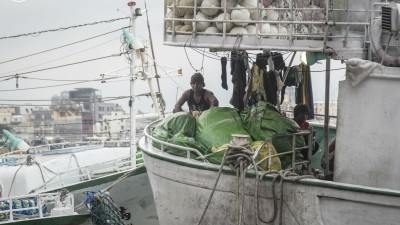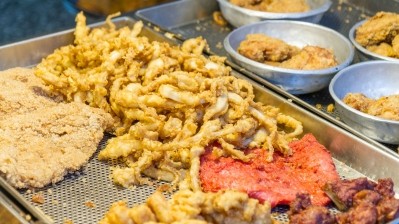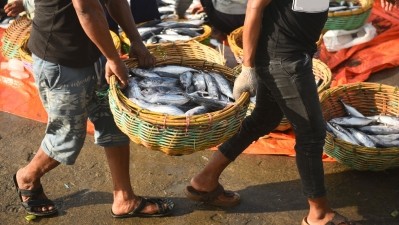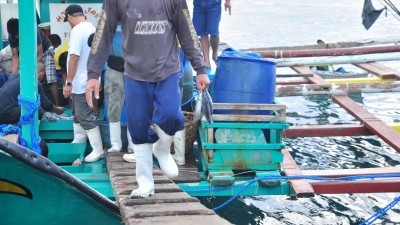'Shocking abuse': Why food firms must demand transparency and traceability to stop Taiwan's illegal fishing
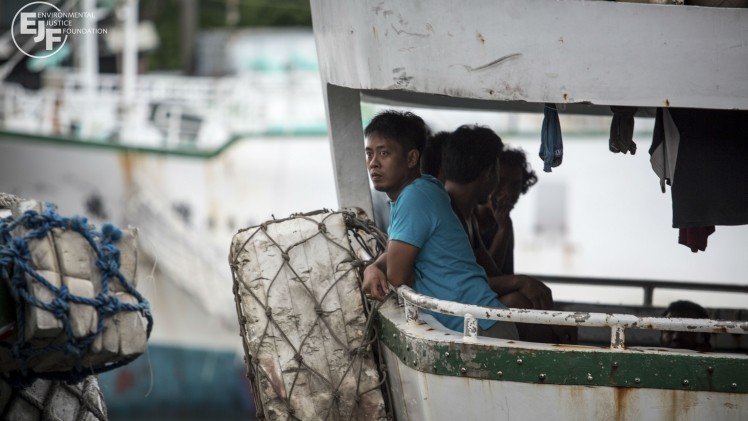
The EJF has called for the Taiwanese government, international seafood buyers as well as other governments to commit to greater transparency and traceability in the country’s fisheries and supply chains.
Steve Trent, director of EJF, said human trafficking and rights abuses underpin illegal fishing, which is rapidly destroying the industry that millions of people rely on.
Extent of the issue
Taiwan has one of the largest deep water fishing industries in the world and is a major supplier of seafood. Seafood exports each year amount to about US$150m to the US, US$17m to European Union (EU) countries, and up to US$475m to Japan.
On the other hand, illegal fishing, including by Taiwan fisheries, is a huge global issue. The total value of illegal and unreported fishing losses worldwide is estimated to be between US$10b and US$23.5b each year.
Related to this is a bigger problem, that Taiwan’s fishery industry is linked to criminal labour and human rights abuses, and even human trafficking.
The US Department of State’s Trafficking in Persons (TIP) Report 2014 estimates there are up to 160,000 migrant workers in Taiwan’s deep water fishing industry.
A vast fleet of almost 1,800 Taiwanese-flagged distant water vessels operate across the world’s oceans. Hundreds more are owned by Taiwanese nationals but fly ‘flags of convenience’ of other states with more lax regulations.
What compounds the situation is that many vessels in the Taiwanese distant water fleet (DWF) do not return to port for months or even years at a time, simply transferring their catch to another boat out at sea.
These long fishing periods allow vessels to exploit marine resources to the maximum, while the isolation on the high seas means that the crew are vulnerable to abuse, with no government measures in place or no arm of the law long enough to inspect their conditions.
EJF’s film and report detail slave workers from Indonesia and the Philippines working on these ships for little to no money and being subject to appalling working and living conditions, as well as threats at gunpoint and severe physical abuse.
Yet, prosecutions for human trafficking and rights abuses in Taiwan’s fisheries industry are almost non-existent.
Seafood industry can help
Max Schmid, deputy director of EJF, said seafood businesses and other food industry stakeholders are some of the “most important actors” in the scenario.
“Just as there are due diligence systems in place to make sure there is proper hygiene in the supply chain, seafood companies need to be looking at the legality of the seafood they’re buying and the working conditions on the vessels or fish farms that they’re buying from,” said Schmid.
He said seafood buyers can start by checking to make sure that the vessels are fishing where they are supposed to be fishing.
“Introducing transparency and traceability to the system is an important first step to eradicate illegal fishing and human trafficking,” said Schmid.
Nonetheless, he said that companies can’t do it alone, and it requires everyone working together — seafood firms and other industry stakeholders, governments, as well as non-profit NGOs.
“If countries and governments start to put pressure on this, then it would give people the tools to see where their seafood is coming from,” he said.
EJF together with Oceana, The Pew Charitable Trusts (Pew) and WWF, has developed a voluntary Code of Practice for due diligence and fair working practices in the fisheries sector.
The Code of Practice Publicly Available Specification (PAS) 1550:2017 takes the form of guidance and recommendations and aims to support decent working conditions on board vessels, in factories and all throughout the seafood supply chain. It came into effect on July 31.
We recently reported that Nestlé and Thai Union Group, together with non-profit research and advocacy group Verité, have launched a demonstration boat to promote better labour and human rights in the Thai fishing industry that has been beset by similar issues.
The vessel features adequate and clean food and drinking water, a first-aid kit, toilet facilities with proper sanitation standards and appropriate rest, dining and leisure areas on-board. Training sessions are being conducted for boat owners, captains and crew members.
Schmid said that for initiatives like that to work, transparency throughout the whole system is required.
“For that to be replicated throughout a fishery, you would need transparency and traceability so that people buying seafood know what vessel their fish is coming from, and if their fish is coming from a vessel that aligns itself with those types of good practice,” he said.
More can be done
“Taiwanese authorities must empower a single, well-resourced and properly trained agency responsible for protecting migrant crew from human trafficking, and all workers should be protected in line with key International Labour Organization (ILO) conventions,” said Trent.
“Unmonitored transfers of catches at sea should also be banned, and maximum trip lengths set.”
Schmid agreed with Trent that Taiwan has the means and technology to put a stop to these.
“All vessels with a Taiwan flag have sophisticated tracking technology. Technologically they’re perfectly able to extend these to protect workers’ rights,” said Trent.
“Their seafood is also going to global markets, which are increasingly expecting that there aren’t human rights abuses in the supply chain.”
EJF believes that by publishing a single, transparent list of Taiwanese vessels and Taiwanese-owned vessels, their authorisations, unique vessel identifiers, beneficial ownership and details of their crew, Taiwan would make it more likely that nefarious operators would be identified and trafficked crew be rescued by bodies working to combat human trafficking and other abuses.
Furthermore, Schmid added that Convention 188 “Working in Fishing” by the ILO came into effect in November. It is an international treaty that sets standards for working on fishing vessels.
“If more countries bring their laws in line with that, it’s an important step forward, along with traceability and transparency,” said Schmid.
